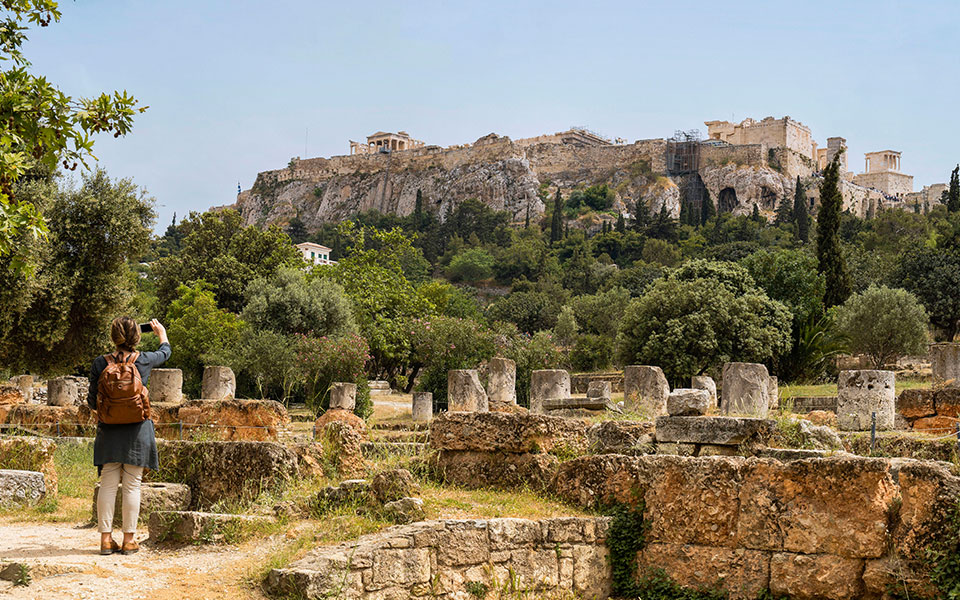The “Please don’t touch” sign has always existed in museums and at archaeological sites. This summer, visitors will have to keep something else in mind too: “Please maintain a safe distance from your neighbor.”
This is something we have had to acquaint ourselves with since May 18, when the country’s archaeological sites reopened after 66 days of forced closure. They now operate on extended hours, visitors buy special summer tickets, and a new protocol has been implemented that we, as visitors, must get used to – mainly by arming ourselves with patience.
The reopening of archaeological sites coincided with the celebration of International Museum Day. However, the country’s museums will remain closed until June 15, in order to give the Ministry of Culture time to hire the necessary 1,650 guards and cleaners. For the time being, security staff from museums have been redeployed to archaeological sites.
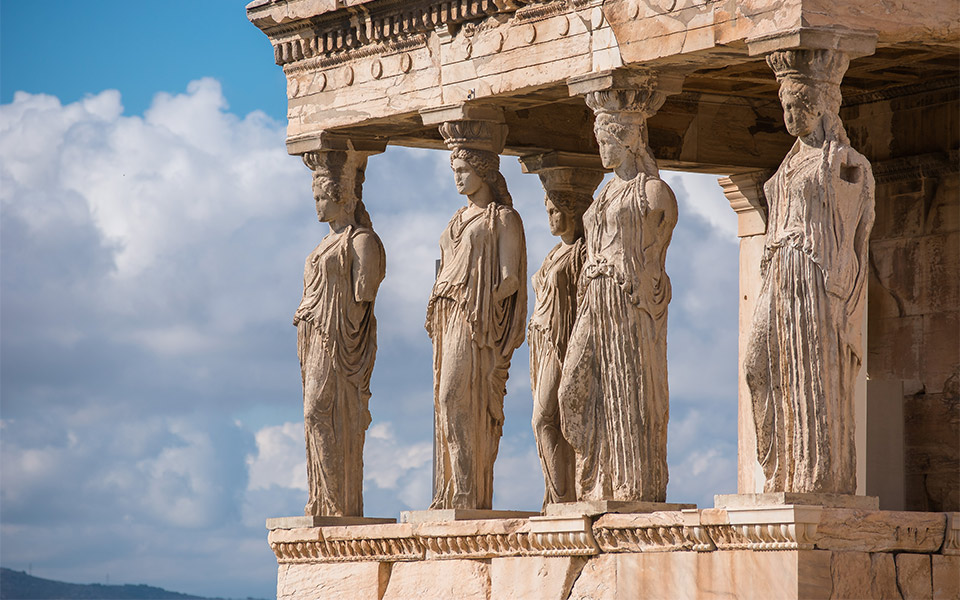
© Shutterstock
Protective plexiglass screens have been put up in ticket offices to separate employees from the public. Additionally, visitors are advised to book their tickets online whenever possible.
“So far, the e-ticket system is running for 12 sites. The project to extend it to at least 10 more has been delayed due to the pandemic, although all the necessary steps have been completed,” Minister of Culture Lina Mendoni said, adding that the Fund of Archaeological Proceeds, which runs the sites is currently working with a Ministry of Digital Governance IT company on this issue.
Although archaeological sites are open to visitors, the refreshment and snack bars will remain closed; they are scheduled to open on May 25, along with food and beverage establishments and restaurants across the country.
“The new 18 refreshment and snack bars that have been announced will open once their contracting arrangements, which were delayed because of the coronavirus, are completed. In some cases, prospective operators indicated they were having second thoughts about taking on the outlets due to the anticipated fall in visitors and the tourism downturn in general. As a result, the Fund of Archaeological Proceeds will reexamine and reconsider rents.
“Still, when these places open – starting with those that operated last year – they will need to comply with the new health measures and the the Fund of Archaeological Proceeds is in contact with the operators about this.”
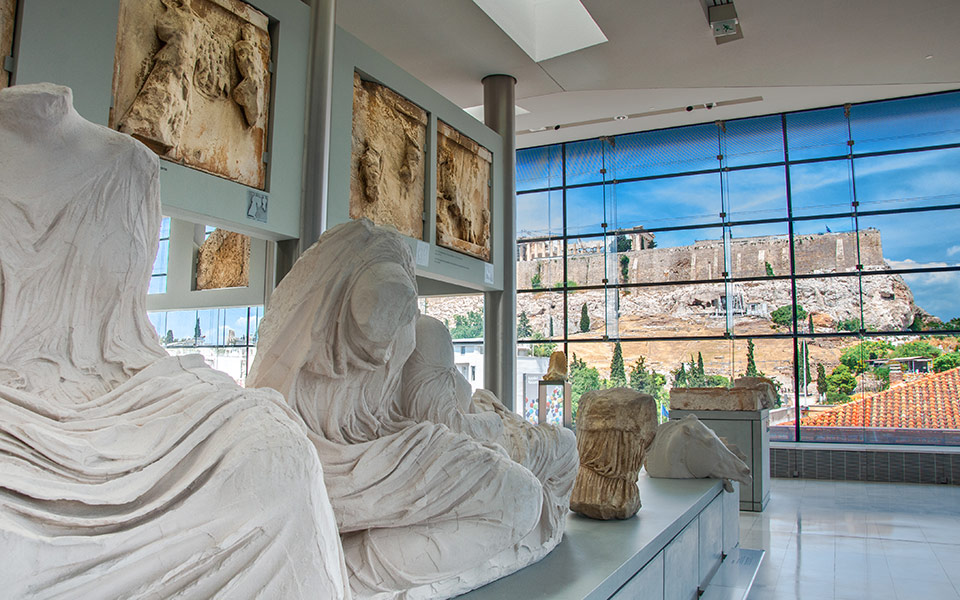
© Shutterstock
Masks and safe distancing
According to the National Public Health Organization, employees at archaeological sites will not be tested for Covid-19 by having their temperatures taken when they begin their shift. Nevertheless, they will wear protective masks, just like the public, who are also advised to keep a distance of at least 1.5 meters from each other.
Visitors with bags will have to leave them in a locker. “On sites with specific features, such as the Acropolis, which can get overcrowded during summer, ‘pause’ areas have been established to regulate visitor access, and additional staff will supervise the respecting of distances and generally moderate the flow. A plexiglass wall that keeps people from touching the handrail at the Propylaea has been installed as an additional protective measure.”
Mendoni states that the Acropolis site can welcome up to 2,000 visitors. There are level areas on the site that will help staff regulate the flow of visitors if the crowd descending becomes too dense. Guided tours will be offered but under some conditions: Groups must be small (8-10 people) and give enough physical space to their guides, who are advised to use voice amplifiers to help maintain a safe distance.
“Not only must we comply with health regulations, we must also cultivate a maximum degree of individual responsibility in order to avoid a new rise in the Covid-19 curve,” Mendoni stressed.
Gift shops will operate with more and newer products, with the aim of compensating for this year’s losses in revenue. Sanitary facilities will be frequently disinfected, in particular public restrooms. Visitors must close the lid before flushing the toilet; additionally, the use of paper towels instead of hand dryers will be promoted.
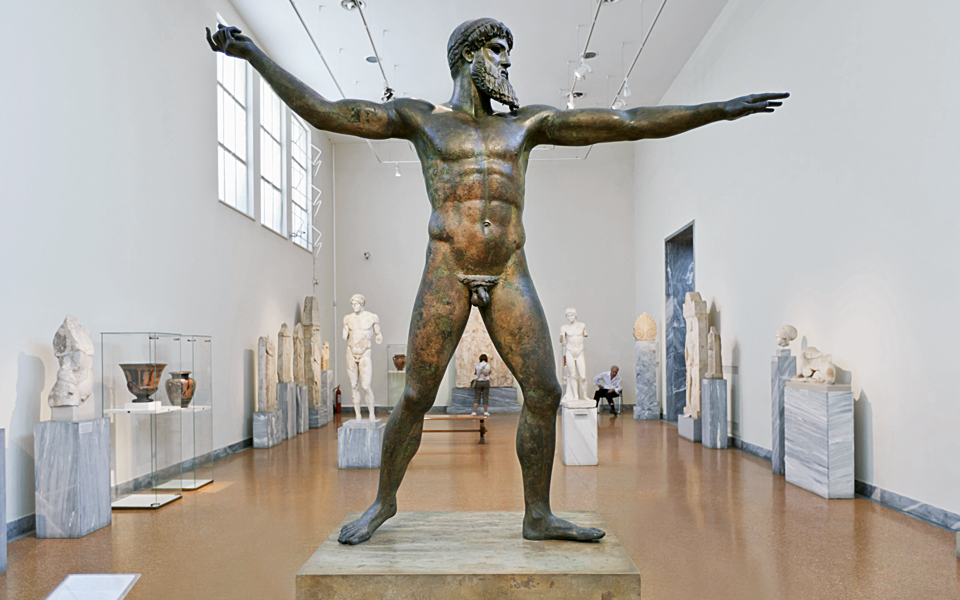
Museum re-openings pose added complexity
According to the Minister of Culture, the reopening of museums is a more complex issue: “Museums will open on June 15 but without air conditioning, except those that have open-circuit cooling systems. Visitors will have to keep a 2-meter distance set by specific markings; they will have to wear masks, just like staff. Visitors will also have to wear gloves if they wish to use interactive installations.
Where it is possible, visitors will enter and exit museums through two different points – the National Archaeological Museum, for example, will make use of its Vasileos Irakliou Street entrance. Museums with only one entrance/exit will install barriers to divide those arriving from those leaving. For the high temperatures in July and August, I have requested that museums provide shaded spaces for visitor queues.” Mendoni also pointed out that Epidaurus must be open for the public so Greece can have a cultural summer and “boost the local economy.”
Acropolis Museum president Dimitris Pantermalis said: “We have suffered a great loss of revenue during this period. Things are not looking good. Last year we covered our expenses, we even gave the Fund of Archaeological Proceeds 2.2 million euros, but things are completely different this year. For three whole months we have had no income at all but still have all the expenses: staff wages, museum maintenance, cleaning… Nevertheless, Pandora left Hope inside the box and prevented it from coming out and now we are left with it.” Whatever the case, the Acropolis Museum will celebrate its 11th anniversary on June 20.
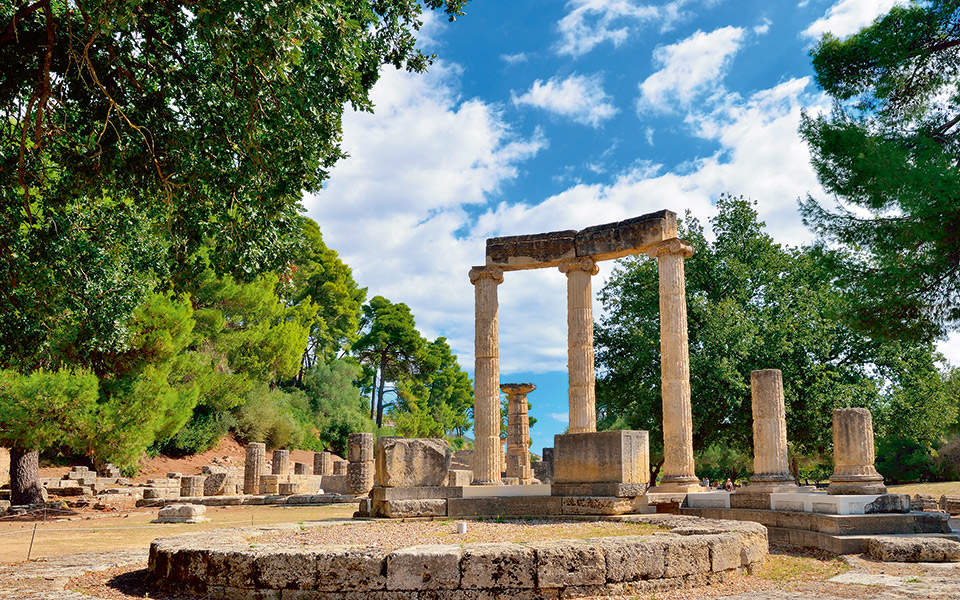
© Shutterstock
Kriton Piperas, president of the Association of Licensed Tourist Guides, said that “a guided tour of the Acropolis will not be a simple task, just like any guided tour requiring movement between different archaeological sites. Disinfecting the tour bus, controlling the number of participants, protecting the driver, using a mask, and keeping safe distances are all complex issues. In sites like Ancient Olympia, you can easily maintain safe distancing but in the National Archaeological Museum, the rooms are small and can barely accommodate two groups at once.”
He also points out that the issue of scheduled appointments and visit lengths must be examined so as to avoid crowd congestion with groups waiting outside, noting that “many practical issues will be dealt with once the spaces reopen.”
Visiting distant sites
Long journeys – for example to Mycenae, Nafplio and Olympia – are problematic, as visitors along with their guide must stay in different hotels and there are concerns whether the protective measures will be implemented in each location.
“Even though foreign visitors will have to undertake a coronavirus test at least 72 hours prior to embarking on the bus, the issue is still a matter of debate. What if someone contracts the virus in the three days before the trip and is asymptomatic? We are all trying to stay positive even though we have effectively lost a season. We hope that we will be able to work at least a few days this year, although no reservations have been made as of yet. As for domestic tourism, Greeks do not usually book guided tours.”

